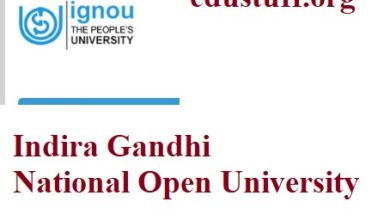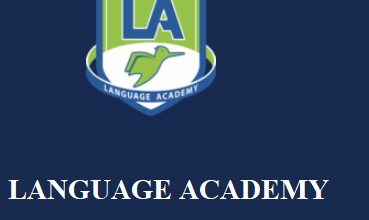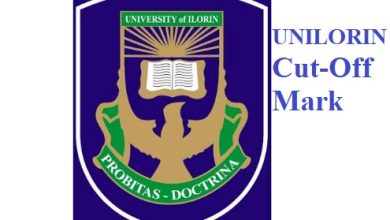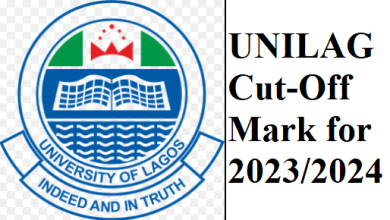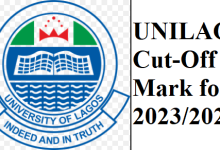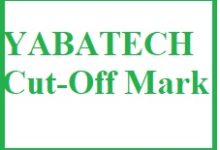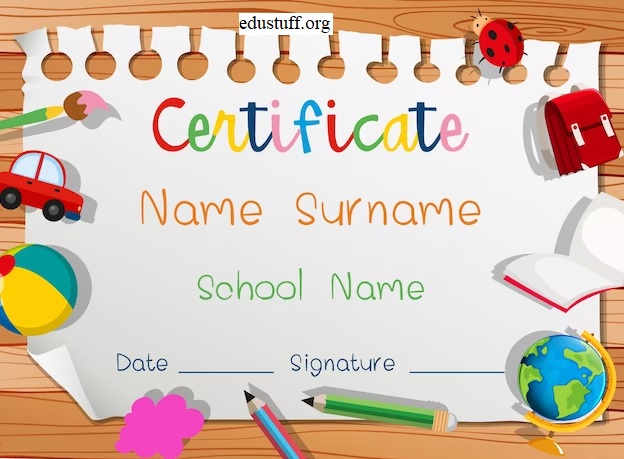
Montessori Certification: Unlocking the Path to Educational Excellence
Montessori Certification: Unlocking the Path to Educational Excellence
Montessori education has gained worldwide recognition for its child-centered approach and emphasis on holistic development. If you are passionate about becoming a Montessori educator and making a positive impact on the lives of children, obtaining Montessori certification is a crucial step in your journey. In this article, we will explore the world of Montessori certification, its significance, and how it can pave the way to educational excellence.
What is Montessori Certification?
Montessori certification is a formal process that validates an individual’s knowledge, skills, and understanding of the Montessori principles and methodologies. It provides educators with a comprehensive understanding of the Montessori philosophy and equips them with the tools and techniques necessary to create an optimal learning environment for children. Montessori certification programs are offered by various organizations and institutions worldwide, ensuring that educators meet the highest standards of Montessori education.
Montessori Certifications Process
The process involves a series of steps and requirements to ensure that educators are well-prepared and competent in implementing Montessori principles. These steps may vary depending on the certification program and organization, but generally include the following:
- Prerequisites: Before embarking on the certification process, aspiring Montessori educators may need to meet certain prerequisites, such as a high school diploma or equivalent, and a genuine passion for working with children.
- Coursework and Training: The core component of Montessori certification is coursework and training. Educators engage in an extensive study of Montessori philosophy, child development, classroom management, and specific Montessori materials and curriculum. This coursework can be completed through in-person training programs, online courses, or a combination of both.
- Observations and Practice Teaching: To gain practical experience, educators are required to observe experienced Montessori teachers in action and engage in practice teaching under supervision. These observations and teaching experiences allow educators to apply their knowledge and gain hands-on experience in a Montessori classroom.
- Assessment and Evaluation: The certification process typically concludes with assessments and evaluations. Educators may be evaluated on their understanding and application of Montessori principles, their ability to create a prepared environment, and their proficiency in using Montessori materials. Assessments may involve written exams, practical demonstrations, and evaluations of teaching practice.
Benefits of Montessori Certifications
Obtaining the certification offers numerous benefits for educators who are passionate about implementing Montessori principles and practices. Let’s explore some of the key benefits of Montessori certification:
In-depth Knowledge and Understanding: Montessori certifications provides educators with a comprehensive understanding of the Montessori philosophy, methodologies, and curriculum. Through coursework and training, educators gain a deep knowledge of child development, learning theories, and the specific Montessori materials and techniques used to facilitate optimal learning experiences for children. This knowledge equips educators with a solid foundation to create engaging and effective learning environments.
Mastery of Montessori Materials and Techniques: Montessori certifications ensures that educators develop a mastery of Montessori materials and techniques. Educators learn how to present materials to children, guide them through activities, and foster independent learning. This mastery allows educators to effectively facilitate children’s exploration and discovery, supporting their intellectual, physical, and emotional development.
Recognition and Credibility: Montessori certifications enhances an educator’s credibility within the Montessori community and the broader educational field. It demonstrates a commitment to professional growth and adherence to Montessori principles and practices. Certified educators are recognized for their specialized training and expertise, which can open doors to job opportunities and career advancement within Montessori schools and educational institutions.
Job Opportunities and Career Advancement: Montessori-certified educators are in high demand worldwide. Montessori schools value certified educators who possess the necessary knowledge and skills to create enriching learning environments. Obtaining Montessori certification can broaden job prospects and increase opportunities for career advancement, such as becoming a lead teacher, program coordinator, or school administrator.
Personal and Professional Growth: Montessori certification is a transformative journey that fosters personal and professional growth. Educators gain a deeper understanding of child development, observation skills, and effective classroom management techniques. They develop strong communication and problem-solving skills, as well as an ability to adapt teaching methods to meet individual children’s needs. Montessori certification encourages educators to continuously reflect on their practice, refine their teaching approaches, and evolve as educators.
Networking and Collaboration: Montessori certifications programs provide opportunities to connect with a network of like-minded educators. Collaborating with other certified professionals allows for shared learning experiences, idea exchange, and ongoing support. Networking within the Montessori community can lead to mentorship opportunities, professional collaborations, and the sharing of best practices.
Impact on Children’s Development: The ultimate benefit of Montessori certification is the positive impact it has on children’s development. Certified educators possess the knowledge and skills to create prepared environments that promote independence, self-discipline, and a love for learning. They can observe and understand each child’s unique learning style and adapt their teaching methods accordingly. Certified educators are equipped to support children’s social, emotional, cognitive, and physical growth, nurturing their full potential.
Lifelong Learning and Continued Professional Development: Montessori certifications marks the beginning of a lifelong journey of learning and professional development. Certified educators are encouraged to engage in ongoing professional development, attend conferences, participate in workshops, and pursue advanced certifications. This commitment to continuous learning ensures educators stay updated with current research, emerging educational practices, and advancements in Montessori education.
Types of Montessori Certifications
Montessori certification is available for different age groups and educational levels, catering to the specific developmental needs of children. Some common types of Montessori certification include:
Early Childhood (Ages 2-6) Certification: This certification focuses on the Montessori principles and curriculum for children in the early years. It equips educators with the knowledge and skills to foster independence, social-emotional development, and academic growth in young children.
Elementary (Ages 6-12) Certification: Elementary certification prepares educators to work with children in the elementary years, guiding their academic and social development. It emphasizes a multidisciplinary approach, fostering critical thinking, and engaging children in deep exploration of various subjects.
Infant/Toddler (Ages 0-3) Certification: Infant/toddler certification focuses on the unique needs and development of children in their earliest years. It equips educators with the understanding of providing nurturing and stimulating environments that promote the physical, cognitive, and emotional development of infants and toddlers.
Specialized Certifications: Beyond the core certifications, there are specialized certifications available, such as Montessori for Aging and Dementia. These certifications cater to specific populations and address unique educational contexts.
Choosing a Montessori Certification Program
When selecting a Montessori certification program, careful consideration is essential. Here are some factors to keep in mind:
- Research and Evaluation: Research different certification programs and institutions to gain a comprehensive understanding of their offerings, curriculum, and reputation. Look for programs that align with your educational goals and values.
- Accreditation and Affiliations: Ensure that the certification program is accredited by recognized Montessori organizations and affiliated with reputable institutions. Accreditation ensures that the program meets the established standards of Montessori education.
- Training Methods and Philosophy Alignment: Consider the training methods used in the program and how they align with your learning style and preferences. Look for programs that provide a balance of theory and practical experience, allowing you to develop both knowledge and skills.
- Practical Considerations: Consider practical aspects such as the program’s location, duration, and cost. Think about whether the program offers flexibility in terms of scheduling, whether it provides ongoing support and mentorship, and whether it fits within your financial means.
The Role of Mentors and Supervisors
Mentorship and supervision play a crucial role in the Montessori certification journey. Experienced Montessori educators serve as mentors and supervisors, providing guidance, support, and feedback to aspiring educators. They offer insights into the practical application of Montessori principles, share their expertise, and help educators navigate challenges that may arise during their training. Mentorship fosters a sense of community, collaboration, and ongoing professional growth.
Continuing Education and Professional Development
Montessori certification is not the endpoint of learning; it marks the beginning of a lifelong journey of professional development. Engaging in continuing education and pursuing further specialization allows educators to stay up-to-date with the latest research, expand their knowledge and skills, and refine their practice. There are various avenues for professional development, such as attending conferences, workshops, and seminars, participating in online courses, and engaging in collaborative learning communities.
Challenges and Considerations in Montessori Certification
Embarking on the journey of Montessori certification comes with its own set of challenges and considerations. Let’s explore some of the common challenges that individuals may encounter and important factors to consider during the Montessori certification process:
Time Commitment: Pursuing Montessori certification requires a significant investment of time. The coursework, training, observations, and assessments involved can be demanding and may need to be balanced with other personal and professional commitments. Time management and planning skills are crucial to successfully navigate the certification process.
Financial Investment: Montessori certification programs often involve tuition fees and associated costs for materials, books, and resources. It’s important to consider the financial commitment required for certification and plan accordingly. Scholarships, financial aid, or flexible payment options may be available to help alleviate the financial burden.
Balancing Certification with Other Responsibilities: Many individuals pursuing Montessori certification may already have existing commitments, such as work or family responsibilities. Finding a balance between certification requirements and other obligations can be challenging. Effective time management, support from loved ones, and open communication about your goals and needs are essential in managing these responsibilities.
Finding Appropriate Practicum and Teaching Opportunities: The practical component of Montessori certification often includes observations and practice teaching in a Montessori classroom. Securing suitable practicum opportunities and teaching experiences can sometimes be a challenge, especially if access to Montessori schools or programs is limited. Researching and networking within the Montessori community can help in identifying opportunities for practical experience.
Navigating Different Certification Requirements: Montessori certification requirements can vary between countries and organizations. If you plan to work internationally or in different regions, it’s important to understand and meet the specific certification requirements of the intended location. Familiarize yourself with the different organizations and their accreditation standards to ensure that your certification is recognized and accepted.
Adapting to the Montessori Approach: Transitioning to a Montessori approach to education may require a shift in mindset and teaching methodologies, especially for educators coming from more traditional educational backgrounds. Embracing the Montessori philosophy, principles, and methods, and being open to new approaches and perspectives are essential for successful integration into the Montessori classroom.
Professional Growth and Continued Learning: Montessori certification marks the beginning of a lifelong journey of professional growth and continued learning. Staying updated with research, attending conferences and workshops, and seeking opportunities for ongoing professional development are crucial to further enhancing your skills and knowledge as a Montessori educator.
Building a Supportive Network: Surrounding yourself with a supportive network of mentors, colleagues, and like-minded individuals can significantly impact your certification experience. Seek out opportunities to connect with experienced Montessori educators, join professional associations, and participate in forums or online communities to gain support, advice, and inspiration throughout your certification journey.
Read Also:
Montessori Activities for Home: Unleash Your Child’s Potential
Learning Activities for Kindergarteners: Unleash the Joy of Learning
Learning Apps for Reading: Boost Your Reading Skills
Careers in Educational Technology
Careers in Educational Psychology: Building Brighter Futures
Scholarships for International Students in the USA
Frequently Asked Questions about Montessori Certification
To address common questions and misconceptions surrounding Montessori certification, let’s delve into a few frequently asked questions:
Is Montessori certification the same as traditional teaching certification?
Montessori certification and traditional teaching certification differ in their focus and methodology. While traditional teaching certification encompasses a broader educational approach, Montessori certification specifically prepares educators in Montessori philosophy, principles, and methods.
What are the career prospects after obtaining Montessori certification?
Montessori certification opens doors to various career opportunities in Montessori schools, both in public and private settings. Educators can become Montessori lead teachers, administrators, consultants, or even start their own Montessori educational ventures.
Can I pursue Montessori certifications if I already have a teaching degree?
Absolutely! Many educators with existing teaching degrees pursue Montessori certification to deepen their knowledge and expand their pedagogical toolkit. Montessori certification enhances traditional teaching degrees, providing educators with a unique and specialized approach to education.
What is Montessori certification?
Montessori certification is a process that validates an individual’s understanding and mastery of Montessori principles and methodologies. It involves completing specific training, coursework, observations, and assessments to obtain certification as a Montessori educator.
Is Montessori certification necessary to work in a Montessori school?
While certification is not legally required to work in a Montessori school, most reputable Montessori schools prefer hiring educators who have obtained Montessori certification. Certification demonstrates a commitment to the Montessori approach and ensures educators have the necessary knowledge and skills to effectively implement Montessori practices.
Can I get Montessori certifications online?
Yes, there are online Montessori certification programs available. Online programs offer flexibility and convenience, allowing individuals to complete coursework and training remotely. However, it’s important to ensure that the online program is accredited and recognized by reputable Montessori organizations.
How long does it take to complete Montessori certifications?
The duration of Montessori certification programs can vary. Some programs can be completed within a few months, while others may take a year or more, depending on the intensity of the coursework and the program’s structure. It’s important to research and choose a program that aligns with your desired timeframe and availability.
Can I become Montessori certified if I have no prior teaching experience?
Yes, you can pursue Montessori certifications even if you have no prior teaching experience. Montessori certification programs are designed to provide comprehensive training for individuals from diverse backgrounds, including those with no prior teaching experience.
Are there age-specific Montessori certifications?
Yes, there are Montessori certifications tailored to specific age groups. The most common certifications are Early Childhood (ages 2-6), Elementary (ages 6-12), and Infant/Toddler (ages 0-3). These certifications focus on the specific developmental needs and Montessori curriculum for each age group.
Can I transfer my Montessori certifications to another country?
Transferring Montessori certification between countries can be a complex process due to variations in certification requirements and regulations. It’s important to research the specific requirements of the country you wish to work in and consult with the appropriate Montessori organizations to understand the steps involved in transferring your certification.
Can I start my own Montessori school after obtaining certification?
Montessori certification provides the necessary knowledge and skills to establish and run a Montessori school. However, starting a school requires additional considerations such as local licensing, funding, and community support. It’s important to thoroughly research and plan before embarking on such an endeavor.
Are there opportunities for ongoing professional development after Montessori certifications?
Yes, professional development opportunities abound in the Montessori field. Continued learning and professional growth are encouraged and supported through workshops, conferences, seminars, and advanced certifications. These opportunities allow educators to stay updated with research, connect with peers, and refine their practice.
Can I pursue Montessori certifications if English is not my first language?
Yes, Montessori certification programs are often offered in various languages to accommodate individuals from diverse linguistic backgrounds. It’s important to seek out programs that provide training in your preferred language or consider programs that offer multilingual options.
Conclusion
Montessori certification is a transformative journey that equips educators with the knowledge, skills, and credentials to create exceptional learning experiences for children. It ensures that educators are well-versed in the Montessori philosophy, methodologies, and materials, and empowers them to foster the holistic development of children. By carefully selecting a certification program, embracing mentorship, and continuing professional development, educators can unlock the path to educational excellence and make a lasting impact on the lives of children. So, take the leap, embark on your Montessori certification journey, and embrace the remarkable world of Montessori education.

